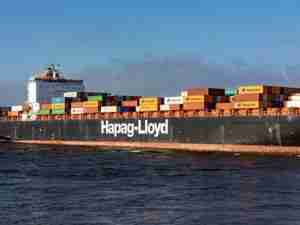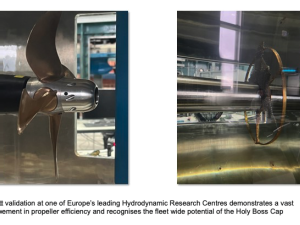Doug J. Marchand, Executive Director of the Georgia Ports Authority (GPA) and Maersk Line announced today the addition of the Port of Savannah to Maersk's MECL2 service.
'We are very pleased to increase Savannah's trade with India, the Middle East and the Mediterranean through the Maersk MECL2 service,' said Marchand. 'We appreciate Maersk Line's confidence in the GPA's facilities and services by selecting Savannah as the MECL2 service's first port of call on the US East Coast.'
Including the MECL2 service, Maersk Line now has five services calling on the Port of Savannah.
'In response to the needs of our customers, who have long sought a weekly US direct service from Southern India, we are pleased to introduce this unique enhanced service to Savannah,' said a Maersk spokesperson. 'Our goal is to reduce transit time between the two destinations by as much as four days, while also providing expanded port coverage, optimal sailing frequency and unmatched schedule integrity.'
In 2006, Maersk Line and the GPA signed a 20-year agreement making the Port of Savannah one of its primary ports of call in the South Atlantic.
The MECL2 service provides direct service from Chennai/Madras, India, providing Southern India with a unique direct link to and from the United States. It also allows Chennai/Madras, India, to act as transshipment hub for cargo to and from Visakhapatnam, Calcutta/Haldai, and Bangladesh. MECL2 also provides improved service reliability in the Middle East and Indian Subcontinent.
The first sailing Eastbound, the Maersk Djibouti, arrived today in Savannah. The MECL2 rotation is as follows: Chennai (Madras), Colombo, Salalah, Jeddah, Algeciras, Savannah, Norfolk, Newark and back to two Mediterranean ports, Algeciras and Gioia Tauro. Eight ships of capacities ranging between 4,000 and 5,000 teus will operate in the service.
Georgia's deepwater ports and inland barge terminals support more than 286,476 jobs throughout the state annually and contribute $14.9 billion in income, $55.8 billion in revenue and some $2.8 billion in state and local taxes to Georgia's bustling economy.










